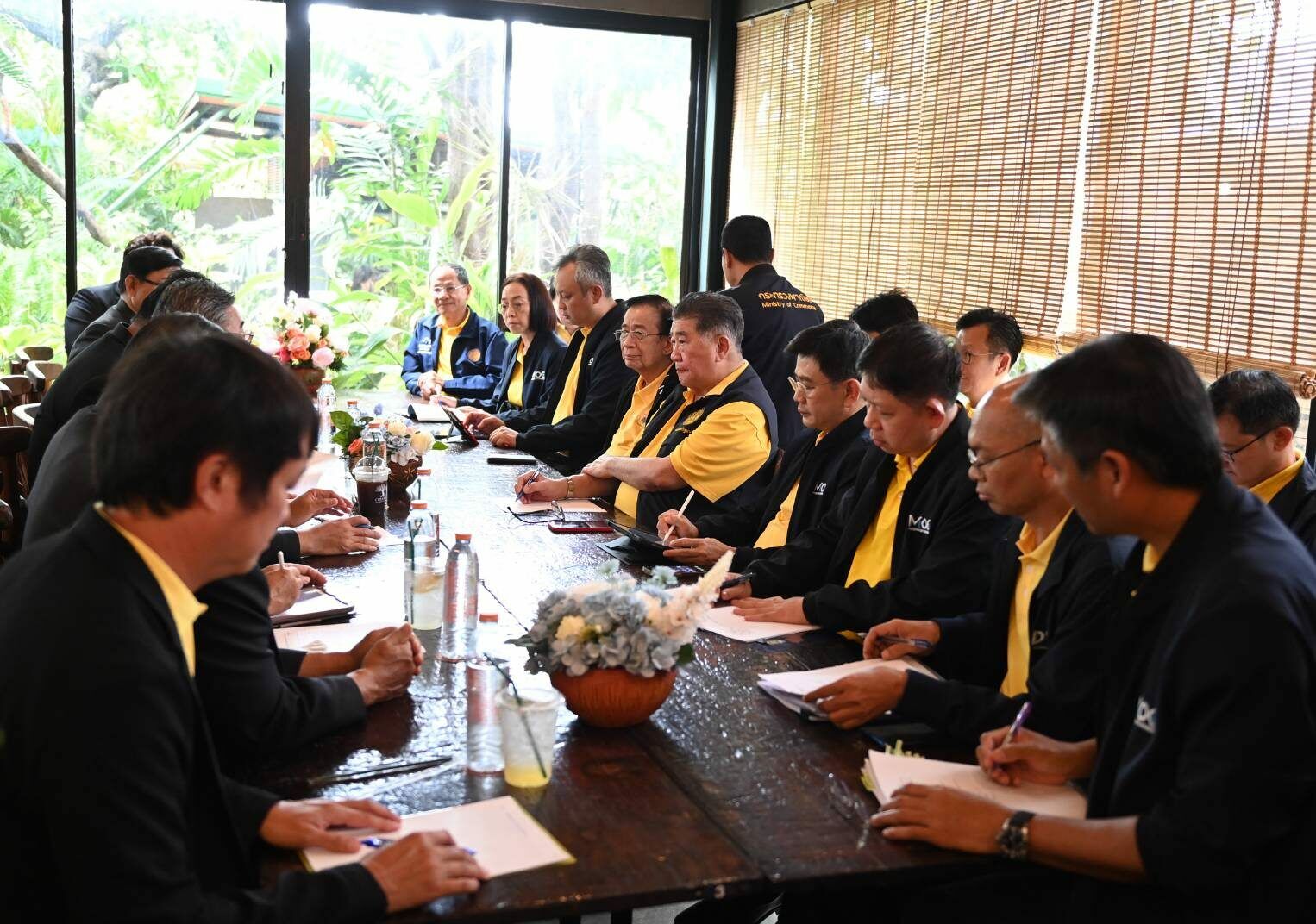Deputy Thai PM orders plan to boost tapioca market in Korat

Deputy Prime Minister and Minister of Commerce Phumtham Wechayachai visited tapioca farmers in Korat, where he ordered the development of a comprehensive plan to manage prices and urged the expansion of new export markets in the Middle East.
During the recent off-site Cabinet meeting in Nakhon Ratchasima, Phumtham met with the Tapioca Association, farmer representatives, and the President of the Northeastern Tapioca Producers Association. The discussions focused on production, domestic and international markets, as well as industry challenges and suggestions.
Private sector representatives proposed urgent government intervention to address these issues. Consequently, Phumtham tasked the Ministry of Commerce and related regulatory bodies with preparing a comprehensive six-point plan:
1. Upstream: The Ministry of Commerce and the Ministry of Agriculture and Cooperatives were assigned to find suitable measures to support farmers in achieving high yield and starch content. They were also tasked with stabilising tapioca prices to ensure farmers receive fair prices for fresh tubers.
2. The Ministry of Agriculture and Cooperatives is to study the feasibility of experimenting with calcium carbonate soil improvement methods for cassava cultivation.
3. Midstream: Measures to regulate the purchase of cassava, including registration of buyers and suppliers of cassava cuttings, will be investigated. The conditions and criteria for purchasing fresh tubers will be revised to promote fairness and improve starch quality. Additionally, efforts will be made to increase domestic use of cassava, particularly in the animal feed and alcohol industries.
4. The Department of Internal Trade (DIT) will consider appropriate measures for regulating the purchase of cassava within the country and study the feasibility of registering agricultural product buyers.
5. Downstream: The Ministry of Commerce is instructed to promote the expansion of cassava markets to new potential markets, reducing reliance on a single primary market. The DIT negotiations will push for increased import quotas for cassava products in destination countries, notably the European Union, Japan, South Korea, and India.
6. The Department of Foreign Trade (DFT) is to organise activities to introduce new markets for cassava products, including tapioca chips and pellets, and cassava residue pellets. Roadshow events will target the animal feed market in the Middle East, such as Saudi Arabia, and other countries with significant cassava demand. These efforts aim to enhance trade bargaining power and reduce dependency on the primary market, while also maintaining existing markets in China by expanding from the alcohol industry to the animal feed industry in southern China.
Phumtham said the discussion received cooperation from all concerned parties.
“It was a positive atmosphere, as everyone understood the facts and problems. As a government agency, we accept the various proposals to take action. It is a good direction.
“Entrepreneurs and all sectors understand that the Ministry of Commerce aims to help small and medium-sized enterprises, and they are cooperating. We need to balance the tapioca system.”
The meeting highlighted the collective understanding and willingness to address the challenges faced by the tapioca industry. The comprehensive plan aims to support farmers, stabilise prices, expand markets, and ultimately strengthen the entire industry, reported KhaoSod.
Latest Thailand News
Follow The Thaiger on Google News:


























